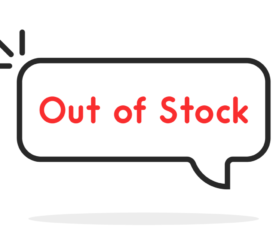

Google Predicts Strength Of Backlinks Ranking Factor Will Drop
source link: https://www.searchenginejournal.com/google-predicts-strength-of-backlinks-ranking-factor-will-drop/470175/
Go to the source link to view the article. You can view the picture content, updated content and better typesetting reading experience. If the link is broken, please click the button below to view the snapshot at that time.

Google’s John Mueller On How To Handle Negative SEO Attacks
Google's John Mueller offers advice on what to do if you're the target of a negative SEO attack.
Matt G. Southern
- November 7, 2022
- 2 min read
-
SHARES
-
READS

Google Search Advocate John Mueller shares an easy way to deal with negative SEO attacks, such as competitors building spammy links to your domain.
Mueller addresses this topic in reply to a thread on Reddit. In the r/SEO forum, an individual believes they’re the target of a negative SEO campaign and is looking for advice.
Mueller’s advice is to ignore the problem. That’s it; ignore it.
Here’s his full reply:
“I’d just ignore them.
Think of it this way, if your competitors are competent, they won’t build links for you. If your competitors are incompetent, the links won’t have any effect.”
Top Freelancers for Every Business
Fiverr gives your team the flexibility to expand in-house capabilities and execute every project by connecting with freelancers for every skill set you need.
Mueller’s response is direct and to the point. A competitor competent enough to build links Google will recognize probably won’t waste their time with negative SEO attacks.
Why would someone build links to a competitor’s site?
Google ignores many links, such as low-quality links a bad actor might build en masse in an attempt to damage a competitor’s rankings.
Therefore, website owners and SEOs should ignore said attacks since Google won’t count the links against a site’s rankings.
This topic comes up now and then, though with the number of search updates rolled out in recent years, it’s worth revisiting Google’s guidance regarding negative SEO.
Mueller’s advice in the Reddit thread is consistent with the advice he provided in the past. Additionally, he’s previously stated that you shouldn’t rush to use the disavow tool if you’re concerned about negative SEO.
Google ignores obviously spammy links, so there’s no need to disavow them. That tool is more for recovering from manual action penalties.
Most SEO professionals don’t use the disavow tool on spammy links, according to a poll on Twitter earlier this year. There’s considerable confidence in Google to deal with them automatically.
However, there’s nothing wrong with using the disavow tool if it makes you feel more comfortable.
For more on what links you should and shouldn’t disavow, see this recent article from VIP contributor Adam Riemer:
Source: Reddit
Featured Image: Andrey_Popov/Shutterstock
Matt G. Southern
Senior News Writer at Search Engine Journal
Matt G. Southern, Senior News Writer, has been with Search Engine Journal since 2013. With a bachelor’s degree in communications, ...
Subscribe to SEJ
Get our daily newsletter from SEJ's Founder Loren Baker about the latest news in the industry!
Google Predicts Strength Of Backlinks Ranking Factor Will Drop
Google Search Advocate John Mueller predicts the strength of backlinks as a ranking factor will drop over time.
Matt G. Southern
- November 3, 2022
- 3 min read
-
SHARES
-
READS

During a live session at Brighton SEO, Google Search Advocate John Mueller makes a prediction about the future of backlinks.
Mueller, joined by fellow Googler Lizzi Sassman and guest Myriam Jessier, fields several questions during a live recording of the Search Off The Record podcast.
Since it’s a podcast, the questions are addressed as a group discussion, as the hosts answer pre-selected questions rather than interacting with the live audience.
Together, the hosts answer a question about how Google penalizes backlinks, which asks:
“As an SEO, we are interested in backlinks. However, actively working on backlinks often becomes a gray area in terms of link schemes. What are Google’s main criteria for penalizing backlinks?”
After some banter between the hosts, Mueller takes a direction with his answer that’s a slight departure from the original question.
Google representatives are often careful when answering questions regarding ranking and penalty criteria.
Generally, Google discourages any form of unnatural linkbuilding. Giving away too many details about penalties could encourage “grey hat” behavior or walking a careful line between what’s acceptable and what isn’t.
Instead of speaking about penalties, Mueller discusses the backlinks ranking signal in general and why it may become less critical to SEO professionals in the future.
Google’s John Mueller On The Backlinks Ranking Signal
As Google becomes more adept at understanding how content fits in with the rest of the web, Mueller suggests Google’s algorithm won’t have to rely so much on inbound links.
Mueller says:
“Well, it’s something where I imagine, over time, the weight on the links at some point will drop off a little bit as we can figure out a little bit better how the content fits in within the context of the whole web.”
Perhaps this is Mueller’s way of saying penalties aren’t worth worrying about because backlinks won’t be as valuable to acquire in the future.
However, suggesting backlinks are only helpful for understanding content disregards all the other information they communicate.
A backlink profile can tell you so much more about a website, such as the extent to which it’s trusted by others, who it’s trusted by, and how authoritative the site is in its particular niche.
Is Google capable of determining all that from the on-page content alone?
Mueller doesn’t speak to the authority aspect of inbound links, though he does say they’ll continue to be helpful to Google for content discovery.
Mueller continues:
“And to some extent, links will always be something that we care about because we have to find pages somehow. It’s like how do you find a page on the web without some reference to it?”
But my guess is over time, it won’t be such a big factor as sometimes it is today. I think already, that’s something that’s been changing quite a bit.”
Hear the full discussion at the 13:17 mark in Google’s latest Search Off The Record podcast:
Featured Image: AlenD/Shutterstock
Recommend
About Joyk
Aggregate valuable and interesting links.
Joyk means Joy of geeK



